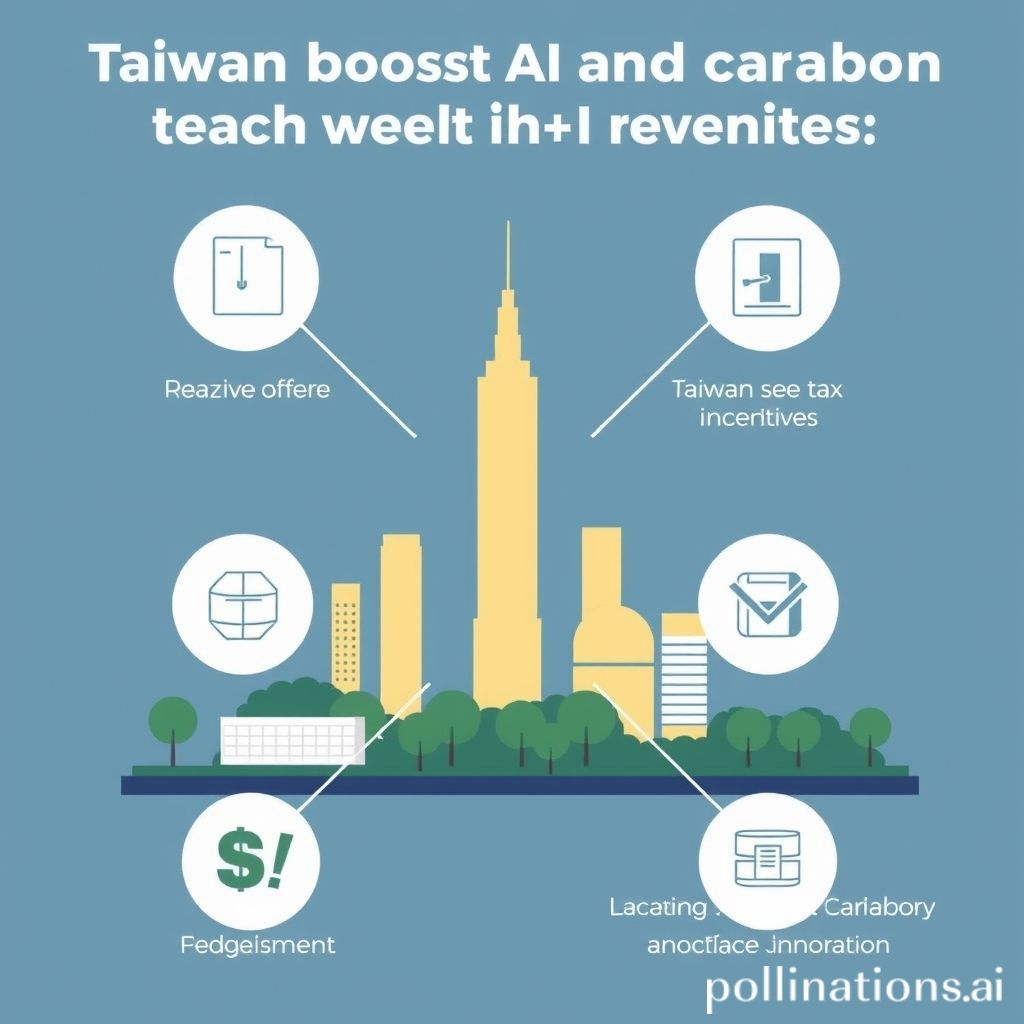Taiwan Boosts AI and Carbon Tech Investment with Tax Incentives
Legislative Yuan Approves Amendment to Spur Innovation and Competitiveness

Taipei, April 18 – In a move designed to strengthen its technological prowess and environmental sustainability, Taiwan's Legislative Yuan has passed an amendment to the Statute for Industrial Innovation, introducing significant tax credits for businesses investing in artificial intelligence (AI) and carbon emissions reduction technologies.
The amendment significantly broadens the scope of eligible investments, offering tax incentives for businesses engaged in these crucial areas. The ceiling for the amount eligible for tax credits in a single taxable year has also been doubled, rising from NT$1 billion (US$30.67 million) to NT$2 billion.
Previously, tax credits were primarily focused on investments in smart machines, 5G technology, and cybersecurity. This expansion reflects Taiwan's commitment to becoming a global leader in AI and green technologies.
The effective period for these new tax incentives will extend until December 31, 2029.
To safeguard Taiwan's strategic advantages and protect key technologies, the amendment includes provisions requiring businesses to obtain government permission before investing overseas in "certain countries" or "specific industries" to be eligible for tax credits.
According to Lu Tseng-hui (呂貞慧), deputy-director of the Department of Investment Review under the Ministry of Economic Affairs, "certain countries" currently include Iraq and Iran. "Specific industries" subject to prior approval include those related to carbon fiber for military use, satellite space technology, agricultural variety cultivation, semiconductor-related technology, and post-quantum technology, with further details to be provided.
Failure to obtain necessary approvals could result in penalties ranging from NT$50,000 to NT$1 million. Moreover, failing to rectify or withdraw unapproved investments after warnings could lead to fines between NT$500,000 and NT$10 million.
The revised law also focuses on fostering innovation within the startup ecosystem, broadening the range of investors eligible for tax credits to include innovative startups created by individuals with investments exceeding NT$500,000.
Additionally, individuals investing in key industries will benefit from an increased maximum income tax deduction, rising to NT$5 million from the previous limit of NT$3 million.
Other Versions
Taiwán impulsa la inversión en inteligencia artificial y tecnología del carbono con incentivos fiscales
Taïwan stimule les investissements dans les technologies de l'IA et du carbone grâce à des incitations fiscales
Taiwan Tingkatkan Investasi Teknologi AI dan Karbon dengan Insentif Pajak
Taiwan promuove gli investimenti nelle tecnologie dell'intelligenza artificiale e del carbonio con incentivi fiscali
台湾、税制優遇措置でAIとカーボンテック投資を促進
대만, 세제 혜택으로 AI 및 탄소 기술 투자 확대
Pinalakas ng Taiwan ang Pamumuhunan sa AI at Carbon Tech sa pamamagitan ng Insentibo sa Buwis
Тайвань стимулирует инвестиции в искусственный интеллект и углеродные технологии с помощью налоговых льгот
ไต้หวันส่งเสริมการลงทุนด้าน AI และเทคโนโลยีคาร์บอนด้วยมาตรการลดหย่อนภาษี
Đài Loan Tăng Cường Đầu Tư vào AI và Công nghệ Carbon với Ưu đãi Thuế

